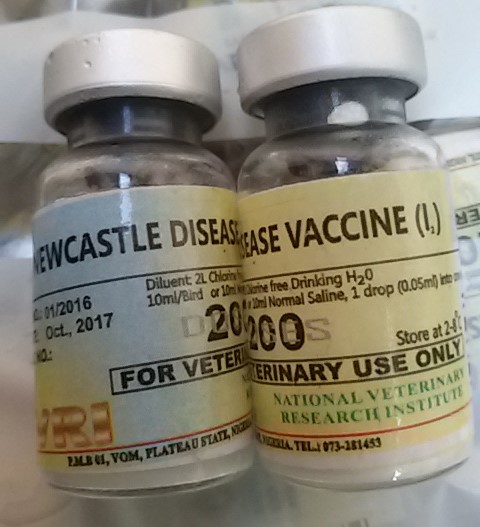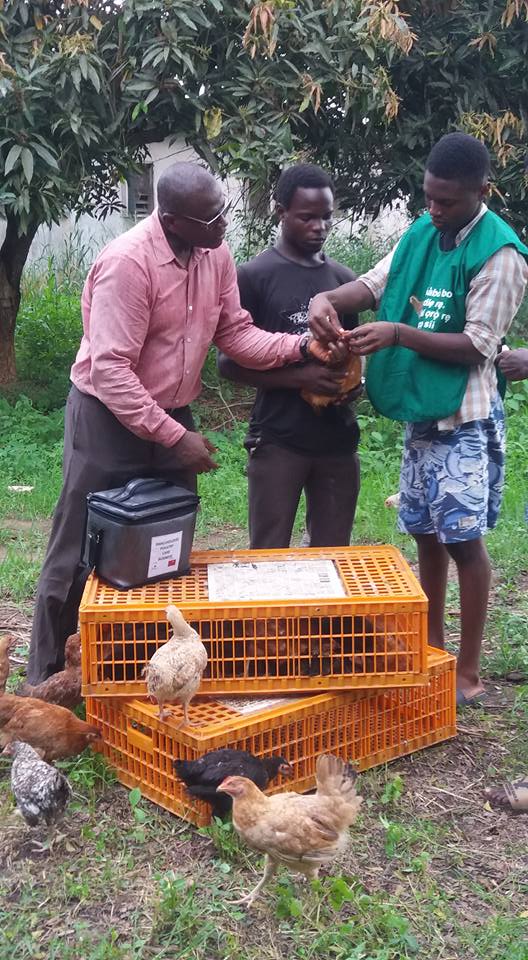
In the bustling poultry markets of Nigeria and across Africa, chickens are more than just a source of food—they are a vital part of the agricultural economy. For smallholder farmers, chickens provide a steady income, nutrition, and a pathway out of poverty. However, the looming threat of Newcastle disease (ND) can devastate entire flocks, jeopardizing livelihoods and food security. This article sheds light on the importance of vaccinating chickens against Newcastle disease, offering actionable insights that can transform the fortunes of smallholder farmers.
Understanding Newcastle Disease
Newcastle disease is a highly contagious viral infection that affects birds worldwide. Symptoms include respiratory distress, diarrhea, and a significant drop in egg production. In severe cases, it can cause sudden death. The economic impact of an outbreak can be devastating, with losses running into millions of Naira in Nigeria alone.
The Lifesaving Power of Vaccination
Vaccination is the most effective way to prevent Newcastle disease. It acts as a shield, protecting chickens from the virus and ensuring the health and productivity of the flock. Here are some compelling reasons why vaccination is crucial for smallholder farmers:
- Protecting Livelihoods
For many smallholder farmers, chickens are their primary source of income. An outbreak of Newcastle disease can wipe out entire flocks, leading to financial ruin. In Nigeria’s Oyo State, smallholder farmer Adebayo Olawale reported losing over 200 chickens in a single outbreak before he started vaccinating his flock. Since then, vaccination has saved his farm, securing his income and allowing him to expand his operations.
2. Ensuring Food Security
Chickens provide essential nutrition through eggs and meat. By vaccinating chickens, farmers can ensure a steady supply of food for their families and communities. In Kenya’s Rift Valley, a community vaccination program has drastically reduced the incidence of Newcastle disease, ensuring that local families have a reliable source of protein and vital nutrients.
3. Boosting Productivity
Vaccinated chickens are healthier and more productive. They lay more eggs and grow faster, contributing to higher yields. In Nigeria’s Kebbi State, a cooperative of smallholder farmers saw a 40% increase in egg production after implementing a regular vaccination schedule. This boost in productivity translates to higher profits and better living standards for the farmers.
4. Cost-Effective Prevention
While the initial cost of vaccination might seem daunting, it is far more economical than dealing with the aftermath of an outbreak. The cost of vaccinating a chicken is minimal compared to the potential losses from an unvaccinated flock. In Uganda, the National Agricultural Research Organization (NARO) has been promoting affordable vaccination programs that have proven to be cost-effective and highly beneficial for smallholder farmers.
5, Promoting Public Health
Healthy flocks mean safer food for consumers. By preventing Newcastle disease, farmers contribute to public health by ensuring that the chickens and eggs reaching the market are disease-free. This builds trust with consumers and can open up new market opportunities for farmers.
Real-World Impact

Across Africa, the benefits of vaccination are evident. In Nigeria, the African Chicken Genetic Gains (ACGG) project has been instrumental in promoting the vaccination of chickens against Newcastle disease. This initiative has led to significant improvements in flock health and farmer incomes. Similarly, in Tanzania, the government’s vaccination campaigns have successfully curbed Newcastle disease outbreaks, safeguarding the livelihoods of countless smallholder farmers.
Conclusion
Vaccination against Newcastle disease is not just an option—it is a necessity for smallholder chicken farmers in Nigeria and the rest of Africa. It protects livelihoods, ensures food security, boosts productivity, and promotes public health. By adopting regular vaccination practices, farmers can secure a brighter future for themselves and their communities.
Invest in the health of your flock and safeguard your future. Embrace vaccination against Newcastle disease and join the movement towards resilient and prosperous smallholder farming. Your journey to sustainable and profitable poultry farming starts with a single vaccine. Don’t wait—vaccinate today!


